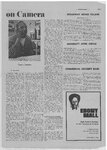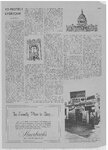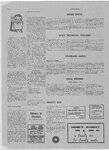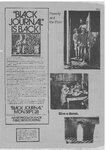Wordpower | 1970-09-24 | Page 8
| Type | issue |
| Date | 1970-09-24 |
| Paper | Wordpower |
| Language | eng |
| City | Salt Lake City |
| County | Salt Lake |
| Category | African American |
| Rights | In Copyright (InC) |
| Rights Holder | Marlene Marie Young, Salt Lake City, Utah |
| Publisher | Digitized by J. Willard Marriott Library, University of Utah |
| ARK | ark:/87278/s65mqbar |
| Reference URL | https://newspapers.lib.utah.edu/ark:/87278/s65mqbar |
Page Metadata
| Type | page |
| Date | 1970-09-24 |
| Paper | Wordpower |
| Language | eng |
| City | Salt Lake City |
| County | Salt Lake |
| Category | African American |
| Page | 8 |
| Reference URL | https://newspapers.lib.utah.edu/ark:/87278/s65mqbar/30528601 |














